David Starkey’s commentary on the Queen’s funeral on GB News was generally agreed to be the best of all the TV coverage, and now he is covering the coronation, and has made a three-part documentary about it for GB News called The Crown. Of course he knows the history, going back to King Edgar’s coronation in 973, but will he also be expected to recognise the guests? Will he have to say: ‘Oh look, there’s Elton John?’ No, he laughs, he leaves all that to his co-presenters. His job will be to explain what the coronation is about, and indeed that is what he proceeds to do when I arrive at his house in Highbury. He talks so seamlessly there seems very little chance of my ever asking any questions.
‘What I tried to do with the Queen’s funeral, and also the King’s accession, was to talk about it as a historian who is also interested in the present. Because I think the failure of the TV coverage was that there wasn’t another serious historian commenting at all. Where was [Simon] Schama? I didn’t even see Andrew Roberts. I think it’s a sign that the producers were not taking it seriously. Monarchy is nowadays regarded as simply a branch of show biz.’
He fears that the forthcoming coronation will be blighted by Charles’s enthusiasm for ‘what he calls modernisation’. ‘It is the most extraordinary pot-pourri – the service seems to be a pastiche of the Book of Common Prayer and the liturgical equivalent of Poundbury.’ He also thinks it’s a mistake not to have the peers in their robes because there used to be a wonderful climactic moment when they all put their coronets on. ‘It was a magnificent piece of theatre. And that’s gone. We will now have this extraordinary miscellaneous collection of people, the sort traditionally referred to as the salt of the earth, in sloppy dress… Because what this coronation shows is that with the breakdown of the old rules, a huge amount of initiative has been handed back to the King. So he can get away with putting the MPs and peers in a box outside, and that’s not what a constitutional monarch should be about. I think that the disappearance of our old governing class and its replacement by a new one is actually a matter for regret.’
Would he like us all to be tugging our forelocks? ‘No, no, I regard myself as the equal of anybody and, in terms of intelligence, superior to most. But I would like to have a governing class that had the sense of public duty, of seriousness about the national destiny that was exemplified by, say, the Dukes of Norfolk, or Winston Churchill. Churchill said that we were better governed when those who governed us were chosen from about l,000 people, than when chosen from 70 million.’
He also objects to what he calls Charles’s ‘pick’n’mix’ attitude to religion. ‘You have a dash of oil from the Holy Land and a bit of Buddhism here, and there a touch of Sikhism. And you’ve got an Archbishop of Canterbury who hates the idea of a national church, he is just the head of a narrow Christian sect. So it means that Charles has this extraordinary degree of choice, and I’m uneasy.’
Has he met the King? ‘Yes. Before my defenestration, I was quite heavily involved with the Prince’s Teaching Institute, and I’m very sympathetic to much of what he’s done – his defence of the sensible teaching of English and history was absolutely spot-on. What I worry about is that he’s the standard definition of a liberal – an assemblage of special interest groups. His mother being the absolute opposite, she embodied a profound respect for the way things are done.’
But he once said that ‘60 years of Elizabeth II… have very much diminished the monarchy’. He was particularly scathing about her lack of interest in the arts, saying she had the cultural sophistication of a ‘housewife’, which he blamed on her lack of a ‘serious education’. ‘Yes, I was. And I’m quite sympathetic to Charles’s interest in the arts. On the other hand, it is worth pointing out that our kings who have been artistically sensitive have, generally speaking, been political catastrophes – Charles I, Richard II and so on. Henry III had dazzling taste but was a disastrous king.’
Has he always been a monarchist? ‘No, absolutely not, quite the opposite. In my days on the Moral Maze I was a radical libertarian. But I decided that is rather silly and shallow and gets us into the mess we are in now. I call myself a rational monarchist. I think that Burke’s analysis of monarchy is correct, that it represents the social contract between past, present and future.’
This seems the right moment to ask about what he calls his defenestration. It happened in June 2020 when he made a podcast with Darren Grimes in which he said that ‘slavery was not genocide, otherwise there wouldn’t be so many damn blacks in Africa or in Britain, would there? You know an awful lot of them survived.’ The axe of cancel culture descended and, although he quickly apologised, he was forced to resign from his honorary fellowship of his alma mater, Fitz-william College, Cambridge, lost several other honorary doctorates and fellowships, and was dropped by his publisher. He was even briefly investigated by the police for an offence under the Public Order Act.
He says he didn’t even remember that he’d said it. ‘This was the most minor little thing, a podcast, something done in an evening without even being thought about – and of course it should have been. But why do you think it’s important to keep scratching at this scab? I suppose it’s naive of me to think it will ever be over. But I’m just tired of talking about it.’ Was he surprised by the reaction? ‘Well, no, because it has become the fashion. If you think that two or three words can destroy a lifetime’s achievement, isn’t there something seriously wrong?’
I suppose if the words are ‘damn blacks’… And it’s not the first time he’s made remarks that some have construed as borderline racist, for instance that Enoch Powell’s Rivers of Blood prediction was essentially correct. ‘I’ve never made a racist utterance in my life. All I said was that Enoch Powell was right when he said that multiracial societies could be prone to violence.’ And when he said that the gangs involved in the Rotherham child sex abuse scandal were ‘acting within their cultural norm’. What did he mean? ‘I merely pointed out the gangs involved were operating in accordance with the values of the Punjab. You must know that the incidence of sexual crime in India is abnormally high because of the extraordinary degrees of sexual repression, and the prevalence of cousin marriage, and so on. These things should be mentioned. But what I passionately refute is that there is some kind of Ku Klux Klan inside me wanting to get out.’ Does he have many black friends? ‘No – because I don’t know very many black people, nor indeed Indians or Chinese. But I encounter a lot of different people because I use Uber a lot, and – you can easily check this – I have a very high passenger rating for good behaviour.’
Another provocative remark he once made was that he was unsure about the value of same-sex marriage and saw it as ‘part of the baggage of heterosexual society’. ‘Yes, when I was young and gay and all the rest of it, the last thing we wanted to do was imitate heterosexuals. When I hear gay men calling each other husband, my flesh creeps.’
Consequently he never married his long-term partner publisher James Brown, who died in 2015. ‘James died alone and I found him dead. The reason I wasn’t there was that I had been doing a series of events for the University of Cambridge – and then, however, many years later, I’m spat out by the university. But I’m not consumed by bitterness. I’m not consumed by rage. I’m a very determined person and I feel I have things that are worth saying. I am not going to be cancelled. I have uncancelled myself. I believe in fighting.’
Got something to add? Join the discussion and comment below.
Get 10 issues for just $10
Subscribe to The Spectator Australia today for the next 10 magazine issues, plus full online access, for just $10.
You might disagree with half of it, but you’ll enjoy reading all of it. Try your first month for free, then just $2 a week for the remainder of your first year.

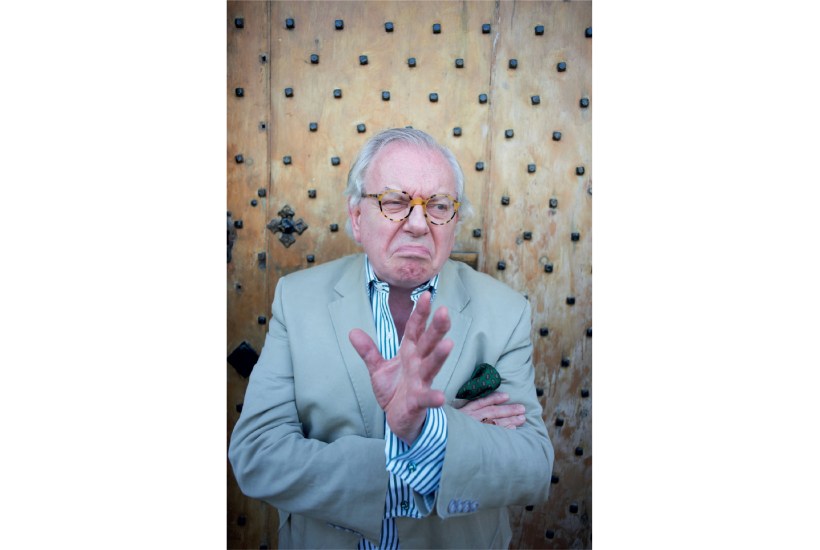
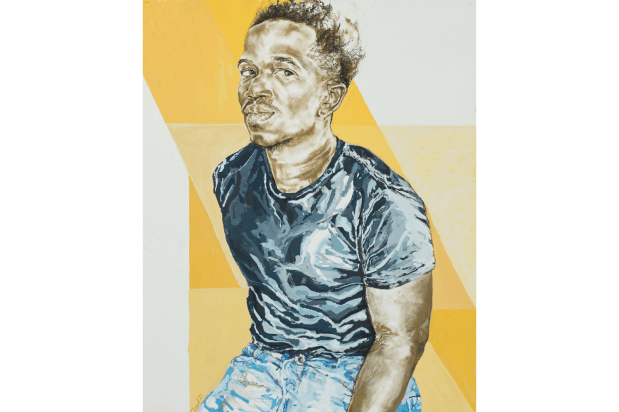
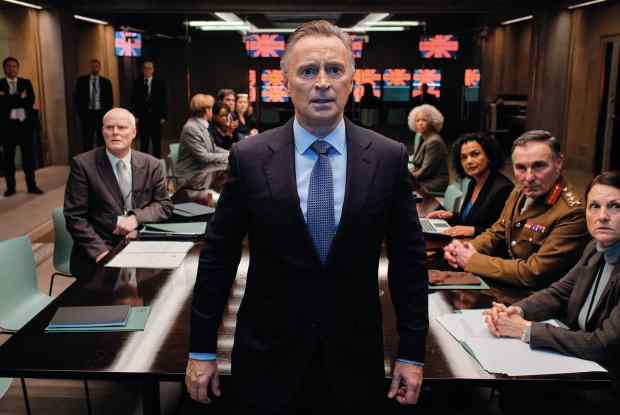
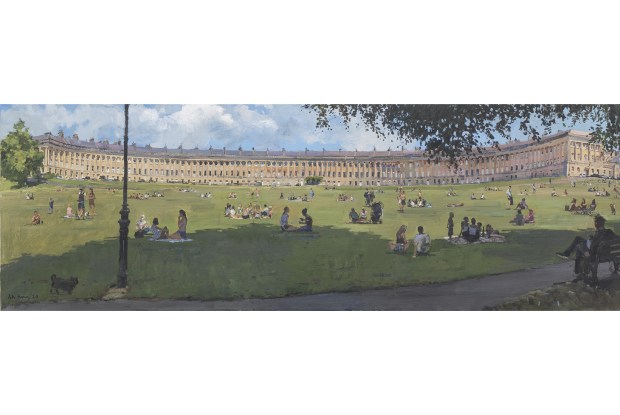


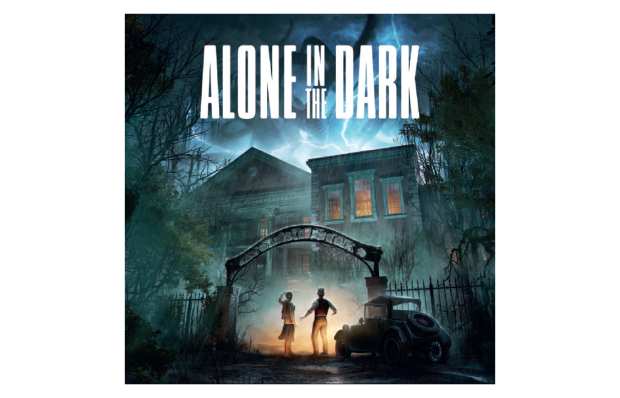






Comments
Don't miss out
Join the conversation with other Spectator Australia readers. Subscribe to leave a comment.
SUBSCRIBEAlready a subscriber? Log in